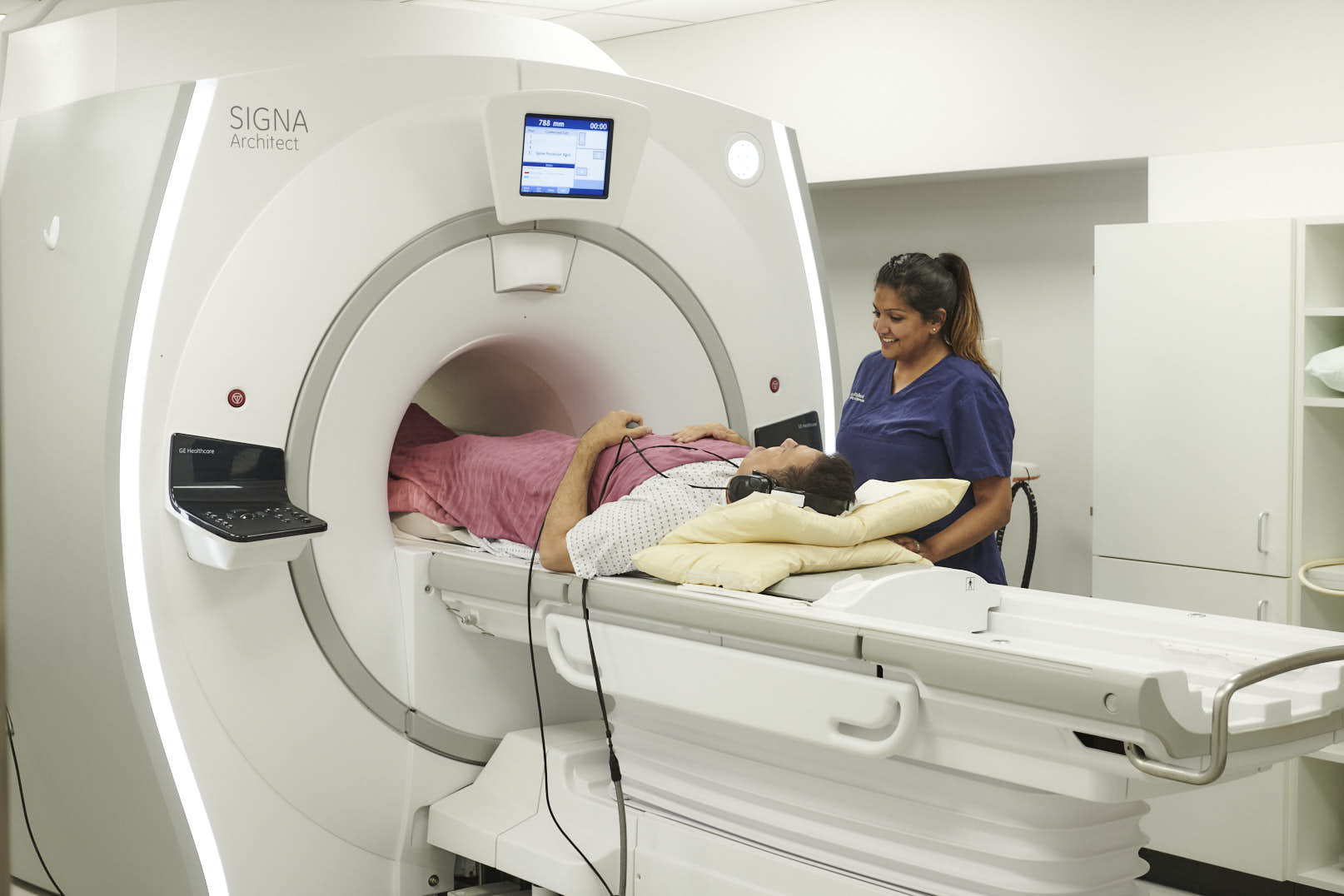This service or treatment is generally covered by most health insurance policies. You are responsible for checking your insurance policy cover, and you may need a referral letter. Check which insurance companies are covered.
Magnetic resonance angiogram (MRA)
A magnetic resonance angiogram is a minimally non-invasive test involving an MRI scan to show the anatomy and detect any abnormalities in the arteries throughout your body.

What is a magnetic resonance angiogram?
A magnetic resonance angiogram (MRA), also called magnetic resonance angiography, is a type of MRI scan that produces detailed images of the blood vessels to show the anatomy and detect any abnormalities.
MRA is a minimally non-invasive test and differs from a traditional angiogram in that it does not involve radiation and can sometimes be performed without the use of contrast (although most MRA’s will be with contrast).
Why is a magnetic resonance angiogram done?
Magnetic resonance angiogram can produce 2D and 3D images of the arteries throughout your body, including the:
- Peripheral arteries
- Carotid arteries
- Circle of Willis (main arteries of the brain)
- Renal (kidney) arteries
- Pulmonary (lung) arteries (although this is normally performed in CT-Computed Tomography)
- Aorta
You may need to have an MRA if your consultant suspects you have a blood vessel-related disease or condition such as:
- Aortic dissection
- Heart disease
- Pulmonary embolism (normally diagnosed in CT)
- Aneurysm
- Congenital heart disease
- Arteriovenous malformation
- Artery stenosis (narrowing of the arteries)
Your consultant may also recommend you have an MRA if you’ve had an ischemic stroke, if they suspect one of the main arteries of the brain is involved.
Preparing for a magnetic resonance angiogram
Before you have an MRA, your radiographer will take you through what’s involved and answer any questions you have.
In most cases, you won’t need to do anything to prepare for your scan, the Imaging department may ask you to stop eating and drinking for 2 hours before the scan. This is if your MRA involves an injection of contrast dye, and to reduce the risk of having an upset stomach when this is injected.
What does a magnetic resonance angiogram involve?
An MRA is done using an MRI scanner. This is a large tube-like machine that uses strong magnetic fields and radio-frequency waves to produce detailed images.
Before going into the scanner, you’ll be asked to change into a hospital gown and remove any jewellery. The machine is very loud so you will also be given earplugs or headphones to wear for the duration of the scan.
MRA can be done with or without a contrast dye to enhance the images of your arterial system. If your scan requires contrast, this will be injected via a small intravenous (IV) cannula in a vein in your arm during the scan. You might notice a metallic taste in your mouth or feeling slightly nauseous but this usually resolves quickly.
When you’re ready, you’ll lie down on a table which will slowly slide into the scanner. The MRI operator will control the scan from an adjoining room where they will be able to see and talk to you over a speaker.
You’ll be asked to lie perfectly still throughout the scan so that clear images can be taken. An MRA can take anywhere from a breath hold to a couple of minutes. However, depending on the area being examined this could take longer if other images are also acquired.
Recovering from a magnetic resonance angiogram
There’s no recovery time needed after an MRA, and you can drive yourself home straight after your scan.
Your consultant will deliver your results to you once the radiologist (specialist doctor in reading images) has done a report. If any abnormalities are found, they will invite you for a follow-up consultation to discuss the next steps and treatment.
Risks of a magnetic resonance angiogram
MRA is generally very safe, and the scan uses no radiation. The contrast used is also very safe and allergic reactions are rare. In the event of an allergic reaction, the clinic has the necessary facilities to deal with this.
If your consultant suspects you may have an allergy to contrast, or if you have a kidney problem your MRA may be able to be done without contrast. If you are unable to have an MRA your consultant will discuss the alternatives with you.




